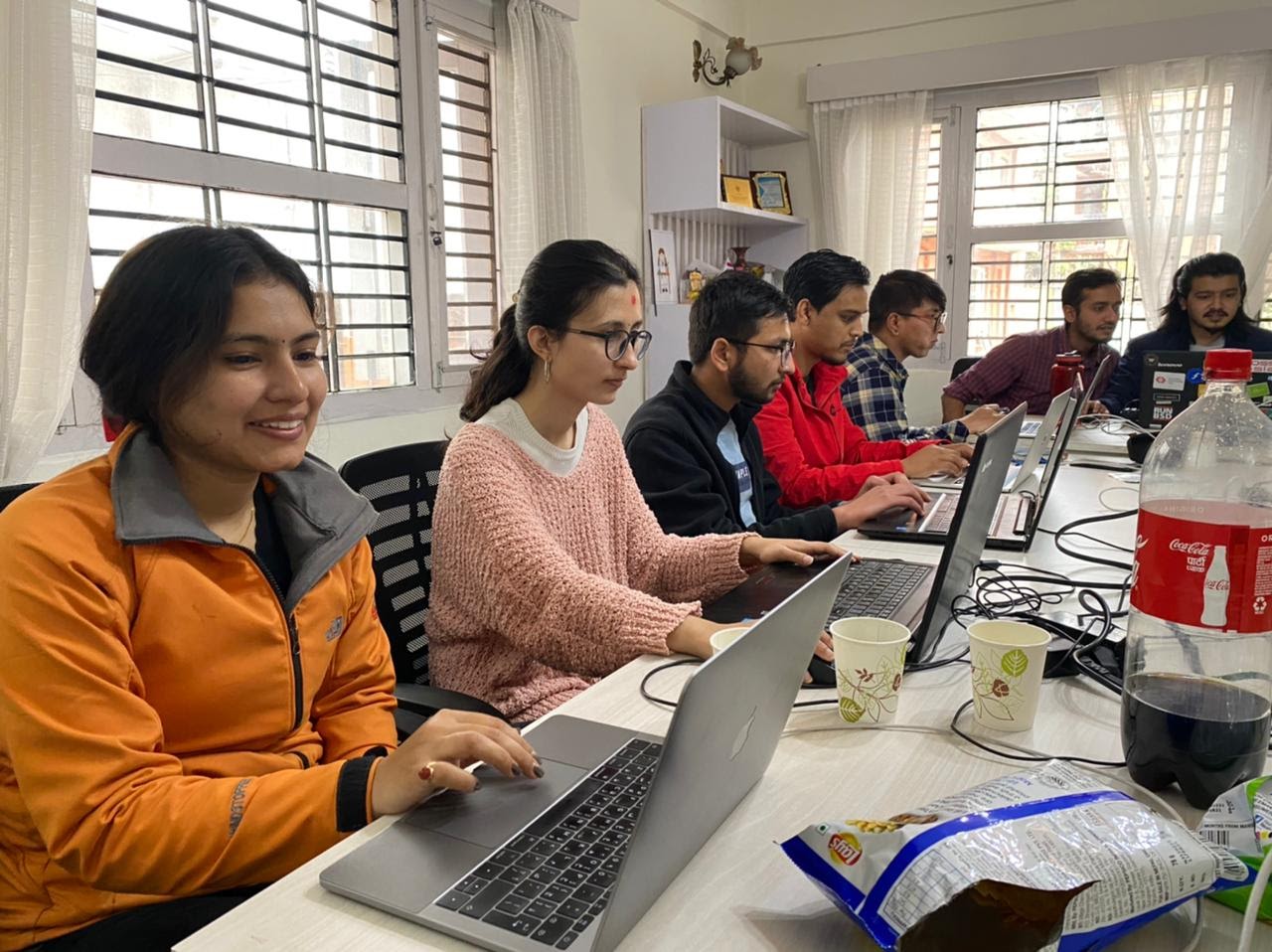DataDive Kathmandu - Event Report
- Date
- Saturday 13 March 2021
- Time
- 11:00 (NPT)
- Location
- Kathmandu, Nepal, Nepal (Asia & The Pacific)
- Organisers
- Open Knowledge Nepal
On Saturday 6th March 2021, the eleventh Open Data Day took place with people around the world organising hundreds of events to celebrate, promote and spread the use of open data. Thanks to generous support from key funders, the Open Knowledge Foundation was able to support the running of more than 60 of these events via our mini-grants scheme.
This event received an Open Knowledge Foundation mini-grant thanks to support from Microsoft.

How did your event celebrate open data?
12 people attended the DataDive and everyone aimed to make the best utilisation of the available data to generate more user case stories and encourage others to publish the data. Nikesh Balami, CEO/co-founder of Open Knowledge Nepal, started the event by welcoming all the individuals and oriented on the tentative goal of the gathering. He highlighted the core values of coming together as a community and contributing to the common goal. The gathering was more of an informal collaborative forum, and it was rightly highlighted by Arogya Koirala from Kathmandu Living Labs. He opined the need for developing a peer learning and collaborative open community rather than a top-down approach of coaching the participants. It was interesting to note, how all participants passively agreed to the notion of more informal, open peer-based learning in community settings.
After the introduction session, the event free flowed. Everyone worked on what best fits the goal of the event, as per their expertise and through collaboration. Some of the works included:
- Solving bugs in the ‘Open Data Nepal’ portal.
- Developing a data scraper for scraping the data such that it would be convenient to convert it in open format.
- Brainstorming for the designing logo of Air Quality Nepal bot (currently available on Twitter).
- Refining data from the Kalimati Fruits and Vegetable Market Development Board.
- Researching on government portals and other relevant organizations, discovering useful climate and environment data, making it open and uploading it in the Open Data Nepal’s portal.
Here is the event blog post: http://oknp.org/2021/03/14/rebuilding-community-to-work-on-climate-and-environment-data/
Last Saturday, we organized #DataDive Kathmandu & invited a few teams of volunteer data scientists, developers & designers to explore the key climate and environment data sources of Nepal.
— Open Knowledge Nepal (@openknowledgenp) March 15, 2021
Thank you all for joining 🙏
Read the details here: https://t.co/yQeFC1BwpS #OpenDataDay pic.twitter.com/WmpzoNLchD
Lessons learned from your event
Despite being in the high-risk zone due to climate change, we realised that the climate and environment datasets related to Nepal are very difficult to access. Most of the teams struggle to find the datasets and in many cases, the available datasets are incomplete and are in unstructured formats so, lots of time was consumed in data cleaning.
Participants got to learn new things from each other and some of them successfully published the scrapped and datasets on the portal. Some of the participants showed great enthusiasm and have committed to continue the work of opening up climate and environment data of Nepal.
Why do you love Open Data Day?
Because it gives us an opportunity to reflect and celebrate.
Did you or your team produce any resources (datasets/tools/maps/code/etc) during your Open Data Day celebrations?
https://opendatanepal.com/dataset?category=Environment+%26+Climate
